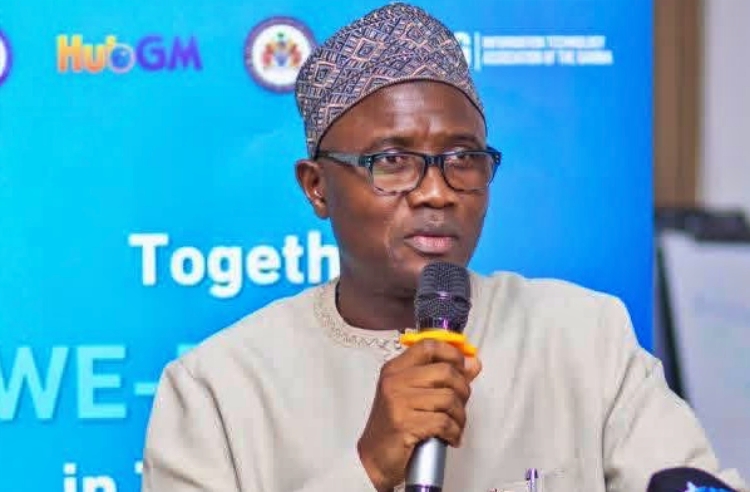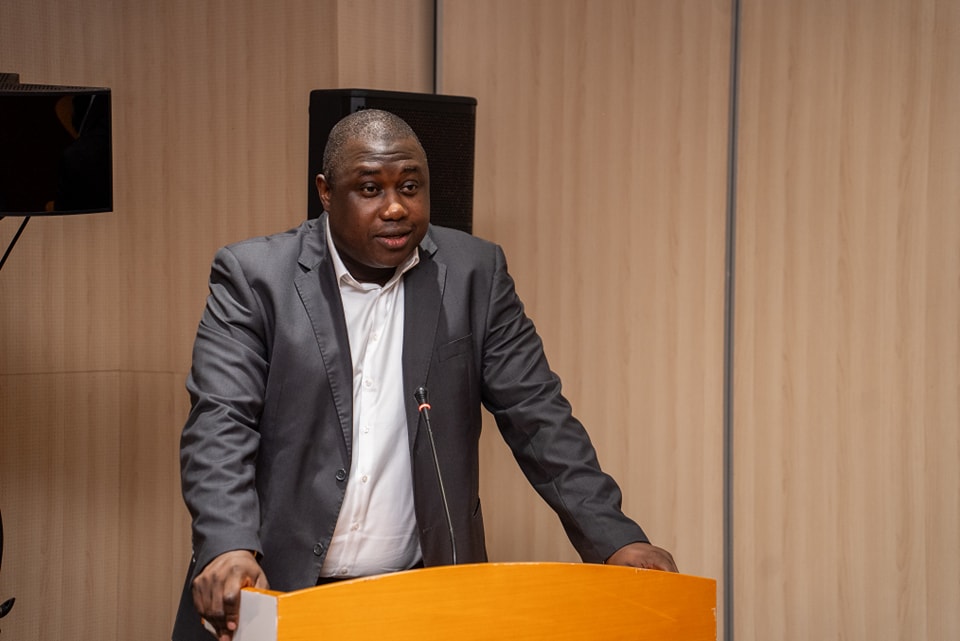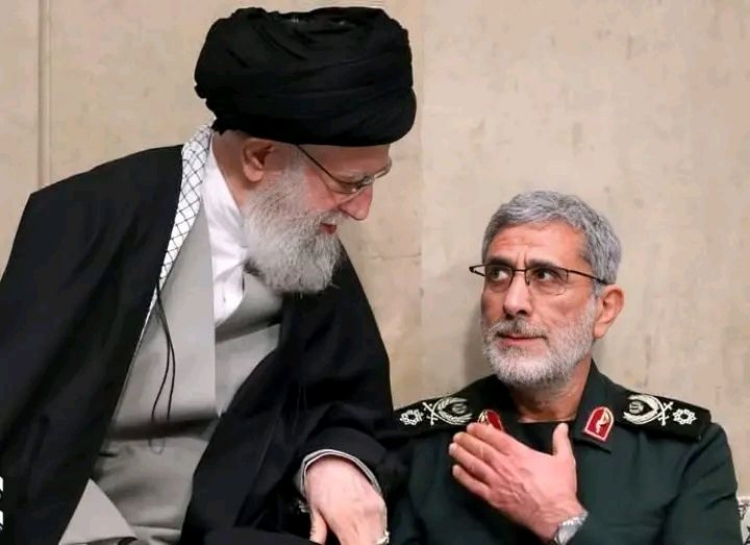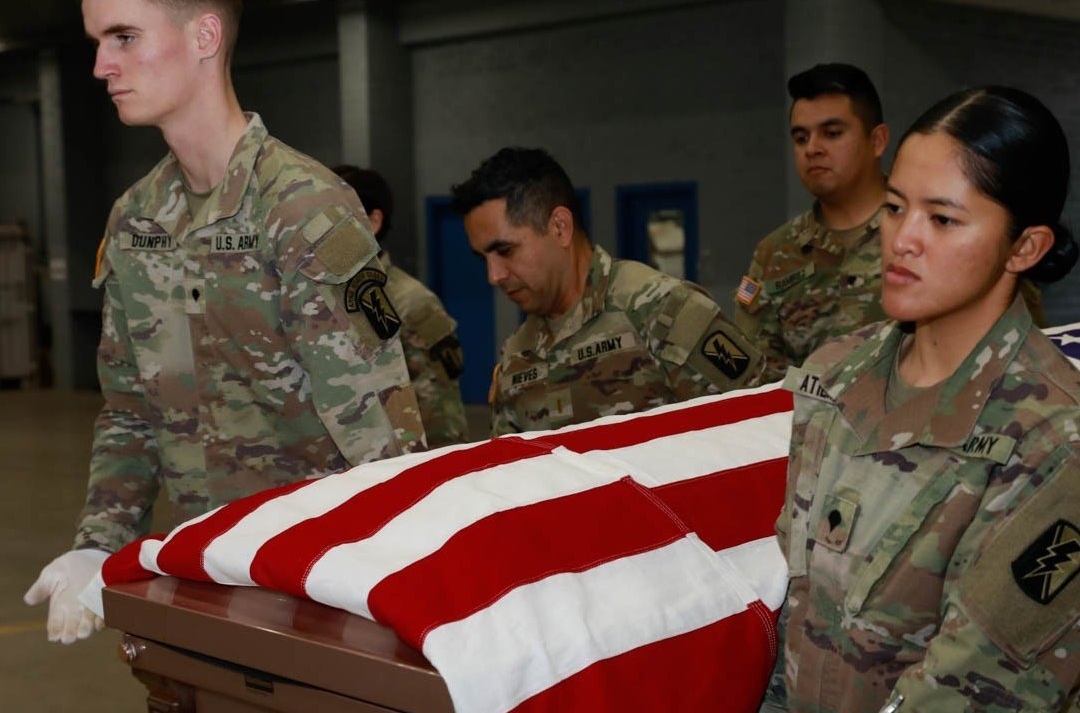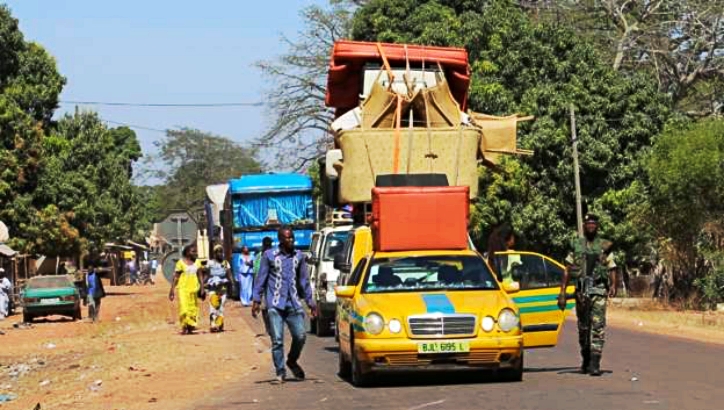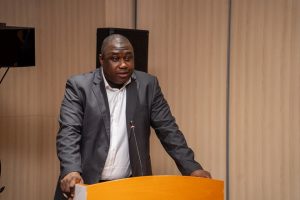Gambiaj.com – (BANJUL, The Gambia) – A group of people sat on a narrow railing—relaxed, balanced, perhaps unaware of the fragility beneath them. Then one tried to jump up and join them. He stumbled. In his panic to regain balance, he grabbed another. That one grabbed another. Within seconds, the entire group crashed to the ground.
What began as a single misstep ended in collective collapse.
I came across this video recently and could not stop thinking about how deeply it mirrors where we are as a nation. On the surface, it may seem like harmless humor—light entertainment in our scroll-heavy lives—but beneath it lies a sobering truth: we are more connected and more vulnerable than we realize.
Today, as our political and digital spaces grow increasingly toxic and polarized, I feel uneasy. The tone of our engagement has shifted—less constructive, more accusatory; less cooperative, more combative. And, as in the video, the careless act of one can trigger a chain reaction that unsettles everyone.
One stumble. One pull. And we all fall.
That clip, viewed with intention, is more than slapstick—it is a mirror of The Gambia today.
We are a small nation bound by more than geography. Our families, neighborhoods, workplaces, and institutions form a tightly woven tapestry.
We sit together—metaphorically—on a narrow railing of coexistence, where each person’s action affects the balance of all. One reckless choice, one irresponsible remark, one unexamined ambition—and the whole system begins to tremble.
In recent times, we have seen how individuals—whether politicians, civil servants, religious leaders, or social media influencers—can sow division, spread mistrust, or erode confidence in public life.
One ill-considered statement. One dishonest decision. One betrayal of trust. And the ripple travels far beyond its origin.
Too often, rumors are passed off as truth, and character assassinations disguised as commentary—not to build understanding, but to score political points or settle personal grudges. The harm may begin with a whisper or a viral post, but its consequences can spiral—dragging down families, shaking institutions, and weakening the national spirit.
When truth becomes casual and suspicion replaces dialogue, we all begin to lose our footing.
A recent study by the National Human Rights Commission, supported by UNESCO, identifies politicians and religious leaders as key sources of hate speech in The Gambia.
It notes political affiliation, ethnicity, and religion as the main triggers, with religious intolerance emerging as a growing concern. Alarmingly, 36% of government respondents and 17% of the public identified religious intolerance as a key driver of hate speech.
The report calls for legal safeguards, civic education, and responsible leadership to preserve national cohesion.
The challenges of post-transition Gambia—healing from authoritarian wounds, rebuilding fragile institutions, nurturing a culture of accountability, and safeguarding peace—demand shared responsibility. But too easily, we forget:
Democracy is not just the changing of leaders—it is the transformation of values.
Peace is not merely the absence of conflict—it is the presence of justice, restraint, and mutual respect.
And so I say:
When one person fans the flames of tribalism, the whole country breathes smoke.
When one person misuses power, the entire institution is weakened.
When one person spreads falsehoods, trust—the glue of our society—disintegrates.
Let us not pretend that the fall of one is not our concern. It is. We are all sitting on the same railing.
Both the Holy Qur’an and the Holy Bible warn against those who stir unrest while claiming noble intentions. The Qur’an cautions:
“When it is said to them, ‘Do not spread mischief on the earth,’ they say, ‘We are only peacemakers.’ Truly, it is they who cause mischief, but they perceive it not.”
(Surah Al-Baqarah 2:11–12)
The Bible echoes this in Proverbs 6:16–19, listing among the most detestable acts before God “a person who stirs up conflict in the community.”
These scriptures urge us to be wary of those who undermine unity under the guise of service. True service to a nation is not loud provocation but steady, sincere efforts toward peace, progress, and the common good.
This moment calls for the return of timeless virtues: restraint, humility in leadership, integrity in service, kindness in our interactions, and silence when silence is wiser than speech.
The Gambia will not rise on slogans alone. It will rise when enough people—ordinary citizens, officials, elders, and youth—choose to be builders, not breakers.
Each of us must pause and ask:
Am I steadying the group—or tipping it over?
Am I spreading calm—or stirring chaos?
Am I acting with care—or merely reacting?
We are not all linked by blood, but we are bound by history, geography, and—if you believe it—divine providence. In a country as small and intertwined as ours, that bond must mean something.
It must mean treating each other like family, even in disagreement.
It must mean valuing relationships as a quiet gift of nature.
It must mean honouring trust—because once broken, it is not easily repaired.
So let us choose our actions wisely. Let us speak with purpose. Let us think beyond ourselves. And above all—
Let us not be the one who causes the whole group to fall.



